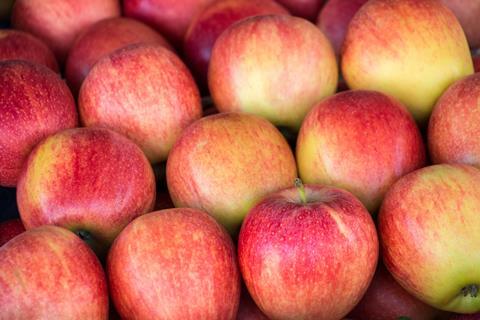Consumers in the Middle East are showing a growing interest in Brazil’s premium export offer
Brazilian apple producers are conquering new markets in the Middle East. Vacaria-based Rasip, one of the country’s biggest exporters, said it plans to export to the UAE and Singapore in the first half of 2024.

The Middle East is a big market for China, the world’s number one apple producer. But Rasip’s president, Sérgio Martins Barbosa, believes there is potential to carve out a niche in the premium segment for Brazilian apples.
Speaking to Globo Rural, Martins said: “These are two countries dominated by fruit imports from China, which is the world’s largest apple producer. However, consumers there are able to pay for better quality fruit, something that Brazil can offer.
“Brazilian apples have more crunch, are tastier, sweeter and have a stronger red colour than the Chinese. This attracts markets that value high quality”.
Rasip owns 1,200ha of orchards in the Vacaria region producing around 60,000 tonnes of apples per year. The company currently exports around 20 per cent of its output to markets including India, the UK, Denmark and Colombia, but aims to increase shipments to 30 per cent of production.
“The Brazilian apple market is very unstable, so exporting is a way to guarantee more stable profitability for the company, as overseas customers are willing to pay better prices for quality products,” Barbosa says.
According to the Brazilian Association of Apple Producers (ABPM), the country is on course to produce around 1m tonnes of apples this season, around the same volume as last season.
The association’s president, Pierre Nicolas Pérès, said the impact of rains in the second half of 2023 has not been as bad as initially feared, and should help reduce excess supply in the domestic market, guaranteeing better prices for producers.
ABPM forecasts point to an export crop of between 35,000 and 45,000 tonnes this year, depending on factors such as the exchange rate and the good development of the harvest throughout the summer, when orchards are susceptible to hail.
“European production was around 4 per cent lower than the previous year. There are also reports that China saw a small decrease – but considering we’re talking about a country responsible for 50 per cent of world production, a small drop could represent the entire production of Brazil,” said Pérès.



